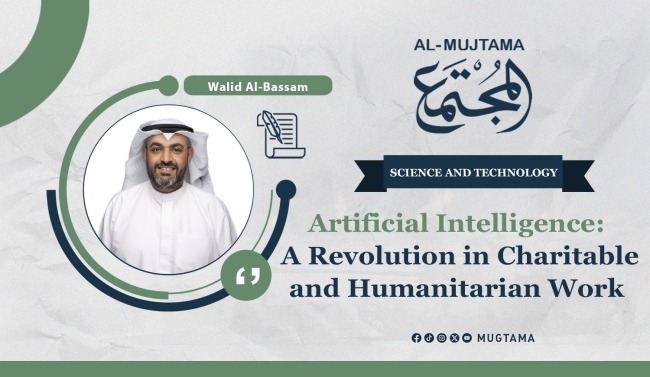Artificial Intelligence: A Revolution in Charitable and Humanitarian Work Featured
In a world facing increasing humanitarian challenges, artificial intelligence (AI) has emerged as an innovative tool bringing about transformative changes in charitable and humanitarian work. With its ability to enhance efficiency, improve transparency, and expand access, AI has become a key player in bolstering relief efforts and meeting the needs of underserved communities with greater precision and impact.
The Role of AI in Charitable Work
1. Enhancing the Efficiency of Humanitarian Organizations
AI can automate administrative and logistical processes, saving time and resources to focus on humanitarian priorities. It can quickly process applications and donations and efficiently manage inventory, contributing to faster and more accurate aid delivery.
2. Improving Donation Processes and Fundraising
With data analysis techniques, AI can prioritize support and direct donations to the most in-need areas. It can also enhance transparency in operations, boosting donor trust and attracting more support.
3. Expanding Reach to Those in Need
Technology can analyze geographical data to identify regions affected by poverty or disasters, enabling organizations to reach the most vulnerable populations, even in remote or isolated areas.
4. Optimizing Resource Management and Distribution
AI helps improve storage and supply chain processes, reducing waste and employing robots to deliver aid to hard-to-reach locations due to natural disasters or conflicts.
5. Effectively Directing Medical Aid
In areas lacking medical expertise, AI can provide diagnoses and analyze medical data quickly and accurately, expediting healthcare delivery.
6. Predicting Disasters and Rapid Response
By analyzing climatic and geographical data, smart technologies can predict natural disasters and issue early warnings, enabling stakeholders to prepare and mitigate damages.
7. Raising Awareness and Educating Communities
AI can analyze public interactions on social media to identify pressing humanitarian issues, aiding in developing effective awareness campaigns to spread knowledge and encourage engagement.
Challenges in Applying AI
1. High Costs
AI application is expensive, particularly for smaller organizations, as it requires investments in technology and training.
2. Integrity and Transparency
Ensuring the fairness of the employed technologies and avoiding AI bias in prioritizing needs are essential. Transparency in data usage must also be maintained.
3. Impact on Workforce
Automation may reduce the need for some traditional roles, raising concerns about job opportunities for workers in the charitable sector.
AI represents a golden opportunity to bring about a qualitative leap in charitable and humanitarian work. Despite challenges related to cost and integrity, investing in this technology could improve the lives of millions worldwide, strengthening the role of charitable organizations as drivers of positive change in societies. By employing AI in innovative and responsible ways, we can build a future that is more just and humane.
-------------------------------------------------------------


